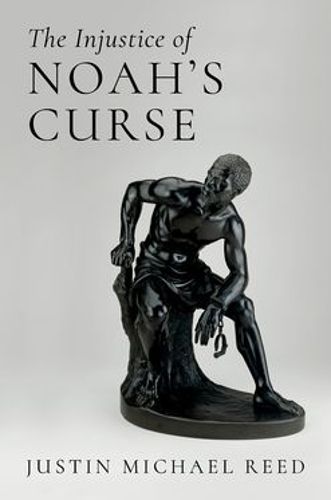Readings Newsletter
Become a Readings Member to make your shopping experience even easier.
Sign in or sign up for free!
You’re not far away from qualifying for FREE standard shipping within Australia
You’ve qualified for FREE standard shipping within Australia
The cart is loading…






Following the flood and the rainbow, Genesis 9 has one final story about Noah. The patriarch gets drunk, strips naked, and passes out. One of his sons, Ham, sees Noah naked. When Noah wakes up, he utters a curse of slavery against not Ham, but one of Ham's sons, Canaan. Why is Noah's reaction so severe? And why does he curse Canaan, who did nothing?
For more than two thousand years, interpreters have tried to make sense of what seems like an injustice in Noah's reaction. The goal of good interpretation, it would seem, is to show how-if we just understand the right details or context-Noah's curse has hit the target with the proper punishment. The most notorious examples of interpretations following this agenda are appeals to Noah's curse as biblical support for denigrating or subjugating others, especially Black people. Modern scholars with no interest in weaponizing the text take the same interpretive approach but with a slight qualification, their rationale for justifying the curse is that they are trying to read in sync with the Israelite authors who they presume intended to write a just curse against the Canaanites.
Although this has been the normative trend in interpretation for centuries, Justin Michael Reed shines light on a different path. Instead of trying to explain away the injustice of Noah's curse, Reed affirms that Noah's curse is unjust, and he uses critical race theory, speech act theory, intertextuality, and irony to make sense of the injustice of Noah's curse in its literary context.
$9.00 standard shipping within Australia
FREE standard shipping within Australia for orders over $100.00
Express & International shipping calculated at checkout
Following the flood and the rainbow, Genesis 9 has one final story about Noah. The patriarch gets drunk, strips naked, and passes out. One of his sons, Ham, sees Noah naked. When Noah wakes up, he utters a curse of slavery against not Ham, but one of Ham's sons, Canaan. Why is Noah's reaction so severe? And why does he curse Canaan, who did nothing?
For more than two thousand years, interpreters have tried to make sense of what seems like an injustice in Noah's reaction. The goal of good interpretation, it would seem, is to show how-if we just understand the right details or context-Noah's curse has hit the target with the proper punishment. The most notorious examples of interpretations following this agenda are appeals to Noah's curse as biblical support for denigrating or subjugating others, especially Black people. Modern scholars with no interest in weaponizing the text take the same interpretive approach but with a slight qualification, their rationale for justifying the curse is that they are trying to read in sync with the Israelite authors who they presume intended to write a just curse against the Canaanites.
Although this has been the normative trend in interpretation for centuries, Justin Michael Reed shines light on a different path. Instead of trying to explain away the injustice of Noah's curse, Reed affirms that Noah's curse is unjust, and he uses critical race theory, speech act theory, intertextuality, and irony to make sense of the injustice of Noah's curse in its literary context.